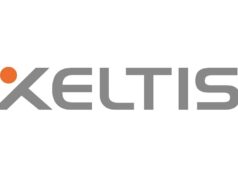 Xeltis has announced promising initial outcomes from two key vascular trials involving its restorative graft technologies.
Xeltis has announced promising initial outcomes from two key vascular trials involving its restorative graft technologies.
According to the company, results from preclinical trials of the Xeltis restorative coronary artery bypass graft (XABG) showed “superior performance” with the graft compared to harvested saphenous veins at one year. The data were presented at the Netherlands Vascular Biology meeting (10–11 March 2022; Biezenmortel, The Netherlands), organised by the Dutch Endothelial Biology Society.
In the trial, XABG showed a more uniform profile and better flow compared to saphenous veins at one-year follow-up, Xeltis claims. Explant analysis revealed advanced healing, with a highly vascularised neo-tissue and evidence of mid-graft endothelialisation, “confirming the ongoing restorative process, and providing essential safety data”, according to a company press release. The restorative graft is currently being evaluated further in clinical trials.
“A restorative CABG device has the potential to offer a solution to a persistent unmet clinical need. The XABG trial results to date are very encouraging,” said Martijn Cox, Xeltis co-founder and chief technology officer.
In addition, more than 350 successful dialysis sessions have been completed in implanted patients within six months from start of a European, first-in-human clinical study, which is assessing its Axess restorative access graft for haemodialysis in patients with kidney failure or advanced kidney disease.
“Only a year ago, we announced the expansion of our device platform across three different clinical applications, including haemodialysis access. Our haemodialysis grafts have now been living and working in patients for months, which is extraordinary, if you think that often times it takes this amount of waiting time to enable haemodialysis via matured fistulas,” said Xeltis CEO Eliane Schutte.
The acceleration of Xeltis’ vascular trials follows the recent receipt of €15 million in funding by the European Investment Bank, and the successful achievement of a grant and equity total of €15m from the European Innovation Council. The company currently has five clinical trials ongoing, covering three different indications.










